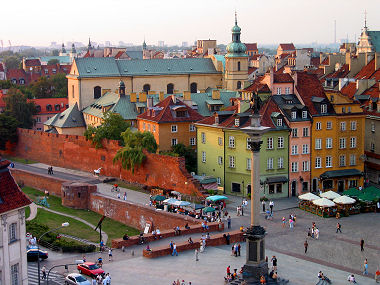POLAND
The legislative vote is tabled for October 25. The country to the polls amidst economic success and political clashes. The bishops’ concerns

Poland is approaching national elections, scheduled for October 25, with a challenge between two major parties. The conservatives of “Law and Justice” (PiS), at the opposition front until recently, gained remarkable consensus in May with the victory of their candidate Andrzej Duda, at the presidency of the Republic. On the opposite front, “Civic Platform” (Po), currently in government, a centrist and pro-European party, has promoted successful economic policies (although GDP growth was not matched by increased family income), considering that Poland has avoided the recession wave that hit the rest of Europe. The upcoming election – linked to fears of high abstention rates – is followed attentively by the episcopate, that called upon the population to go to the polls in full respect of the values of the family and of life. Precisely ahead of the elections the bishops wrote a message to the Country and Monsignor Stanislaw Gadecki, president of the Bishops’ Conference, remarked with concern that “it seems difficult to find a position or a political option that fully correspond to the demands of Christian faith”. PiS ahead in the opinion polls. According to public-opinion polls, slightly more than 60% of voters will participate in the next election, 30% of whom said they would for the Law and Justice Party led by Jaroslaw Kaczynski. All pre-electoral analyses show that the current government majority made up by the Civic Platform and the Farmers’ Party (PsL) is likely to face a defeat. Political analysts disagree only on the number of parties present in the new parliament, where they need to exceed the 5% threshold. Commentators equally disagree on whether PiS will manage to form a single-party government, obtaining the absolute majority of parliament seats, or if it will need to resort to a party coalition. Kaczynski’s party’s candidate premier is 52-year-old Beata Szydlo. If elected, she is likely to enjoy the support of president Andrzej Duda who took office at the beginning of August, also a PiS member. Ewa Kopacz (Po), now at the helm of the government, running for future leadership, promotes the continuation of the current political line. But despite having inaugurated the largest Gpl terminal in Europe’s north-east regions, he has few chances of winning. The parties’ positions. Having travelled for months throughout Poland, Szydlo is familiar with the various sensitivities of the voters. He promised he would reintroduce compulsory education starting from seven years of age and no longer from six, as the Kopacz government did. Addressing others, he echoed Kaczynski and Duda who promised to lower the pension age – in countertendency compared to the rest of Europe – from 67 to 60 for women, and 65 for men, along with the reform of the integrative pension scheme currently in force. The PSL (according to some polls third among the parties) seems to be particularly sensitive to this issue, proposing a “citizenship pension” equal for everyone from 67 years. PiS, that promises more jobs, more homes, and more support to families, while promoting a vision of Poland which in the EU “must have the right to put pressure aimed at a Union of equal and sovereign countries”, warns the ‘public opinion on the need for strict controls of immigrants who “could be carriers of potentially dangerous bacteria or parasites”. Relics in the Parliament. A few days before the vote, while Pis President Kaczynski, focused voters’ attention on the 2010 plane disaster in Smolensk (that killed Kaczynki’s twin brother Lech, former president of Poland), still shrouded in mystery, some MPs announced the introduction, in the chapel of the Parliament in Warsaw, of the relics of St. John Paul II, donated by Cardinal Stanislaw Dziwisz of Krakow, and by Catholic Action (reactivated in democratic Poland after 1995). They invited to vote “candidates with strong morals” and “to choose candidates who not only proclaim Christian values but live and act in accordance with those values”. Miroslawa Grabowska, Director of CBOS Polling Institute, cautioned: “Young people have turned their backs to politics”. According to a survey, 50% of youths “are unhappy about the way politics work in Poland”. While “a third of young people say the would like to emigrate to increase their earnings”. These are signs that politicians should take into due account.